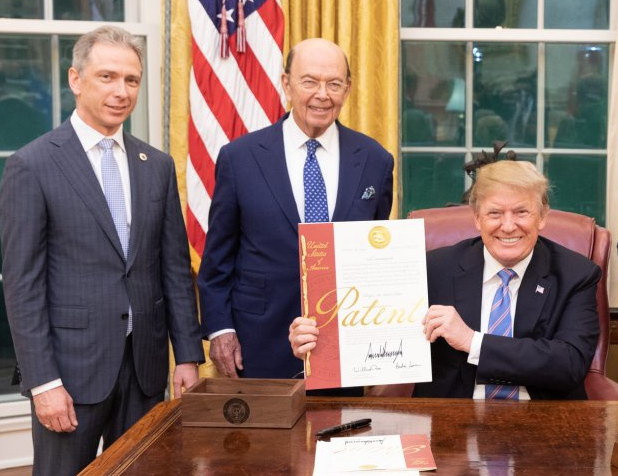

AT THE beginning of January there was a now-infamous (and unsuccessful) attempt to bring back software patents. There's plenty of 35 U.S.C. ۤ 101 and U.S. Patent and Trademark Office (USPTO) news in our next daily links and it's still good news because nothing has changed. They can't quite bring these patents back; courts keep rejecting these; new rejections can be found in Federal Circuit cases and Patent Trial and Appeal Board (PTAB) inter partes reviews (IPRs). The patent maximalists have just about given up. They hardly even write anymore.
"The patent maximalists have just about given up. They hardly even write anymore."Watchtroll wrote as recently as yesterday (in headlines) that “After Alice: IP Stakeholders Comment on Alice’s Impact Five Years On” (they only quote parasites, as one can expect) and John Vandenberg is trying to revive that staged 'debate' from about a fortnight ago. Watchtroll must be rather upset that even Coons, with over a million dollars in bribes from law firms, could not overturn SCOTUS on Alice. These people are still incredibly sore and largely pessimistic because they cannot defeat or even water down 35 U.S.C. €§ 101/Alice. They've even just published "Perspective: Weakening Alice Will Weaken the U.S. Patent System’s Second Engine of Innovation" and all sorts of other nonsense. No programmers ever write there; it's a parade of law firms and trolls.
Michael Borella has just shown that the Trump-appointed Iancu and his judge-bashing flunkies (he used to work for his company!) are trying to come up with other names/misnomers for abstract patents (e.g. “Computer-Implemented Functional Claiming”) and "there is a growing likelihood that Congress will strengthen €§ 112 in an attempt to disambiguate €§ 101". From Borella's post: (promoted in this tweet of theirs)
On June 11, 2019, the U.S. Patent and Trademark Office held a public presentation -- a patent quality chat -- regarding the interpretation of computer-implemented claims using functional language under 35 U.S.C. ۤ 112. Mostly, this presentation was an overview of the USPTO's January 7, 2019 Federal Register notice on the same topic. But, there is a growing likelihood that Congress will strengthen ۤ 112 in an attempt to disambiguate ۤ 101 (see the recent Senate Subcommittee on Intellectual Property testimony and the current draft bill). While most of the presentation was a reiteration of existing law and USPTO practice, taking another look at the current state of ۤ 112 and where it may be going for computer-implemented inventions is a worthwhile effort.
The presentation begins with an acknowledgement that the Federal Circuit has raised issues with broad, functional claiming of software technologies without adequate support in the context of both ۤ 112 and ۤ 101. The USPTO's position is that these problems can be addressed by properly applying ۤ 112.